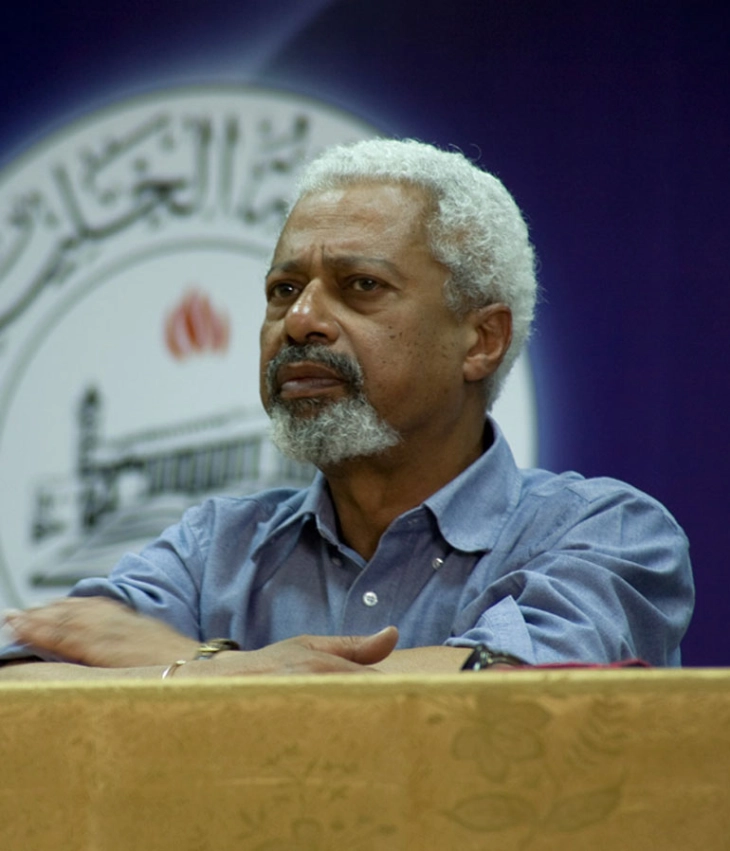Nobel literature prize awarded to Tanzania's Abdulrazak Gurnah

Stockholm, 7 October 2021 (dpa/MIA) - This year's Nobel Prize in Literature went to Tanzanian author Abdulrazak Gurnah "for his uncompromising and compassionate penetration of the effects of colonialism and the fate of the refugee," the Swedish Academy announced on Thursday.
Gurnah was born on the island of Zanzibar in 1948, but, following the end of British rule in 1963, Gurnah faced persecution due to his Arab ethnicity and was forced to flee, eventually arriving in Britain as a refugee in the late 1960s, where he has lived ever since.
"I thought it was a prank. I really did," the Tanzanian writer said in an interview published on the Nobel Prize Twitter channel about the moment he was called by the Swedish Academy on Thursday.
As the Swedish Academy's Permanent Secretary Mats Malm continued to speak in a calm voice, he said, the message slowly sank in. "It was not something that was in my mind at all. I was just thinking: Who will get it?"
During the Nobel interview, his phone rang and it was the BBC. He told the British broadcaster he was "surprised and humbled" to be honoured with the Nobel Prize in Literature. "It was such a complete surprise that I really had to wait until I heard it announced before I could believe it."
Later the author tweeted: "I dedicate this Nobel Prize to Africa and Africans and to all my readers."
He taught at the University of Kent until his retirement. "We are absolutely delighted that our former lecturer Abdulrazak Gurnah has been awarded the Nobel Prize for literature - truly inspirational!" the university tweeted.
The University of Kent's vice chancellor and president Karen Cox said: "Abdulrazak is a complete inspiration to all of us – as a teacher, an alumnus of Kent and as such a powerful voice in postcolonial literature.
"His stories, some of which were first drafted in our very own Templeman Library, have touched millions worldwide and shine a light on human experiences that are so often ignored.
"We couldn't be prouder of his success."
Bashir Abu-Manneh, head of the university's School of English, added: "Abdulrazak Gurnah's writing epitomizes our contemporary condition of displacement, violence, and belonging.
"His is the struggle for individual voice, for justice, for feeling at home in an ever-changing world.
"No one writing today has articulated the pains of exile and the rewards of belonging so well. Canterbury and Kent are both his exile and home."
Gurnah's work numbers 10 novels, including "Paradise," which was shortlisted for both the Booker and the Whitbread Prize in 1994. The refugee experience and the dislocation that accompanies it is a central theme to much of his work.
The academy cited his "dedication to truth and his aversion to simplification" saying his novels "recoil from stereotypical descriptions and open our gaze to a culturally diversified East Africa unfamiliar to many in other parts of the world."
The Nobel Prize for Literature is the world's most prestigious literary award and comes with 10 million Swedish kronor (about 1.1 million dollars) prize money.
The academy's choices have in the past been criticized for being eurocentric, lacking diversity and for having a political agenda.
Gurnah is only the sixth African Nobel literature laureate, joining the likes of Albert Camus, Wole Soyinka and JM Coetzee.
Last year, the US poet Louise Gluck was awarded the literature prize, one of just 16 women to receive it since 1901.







